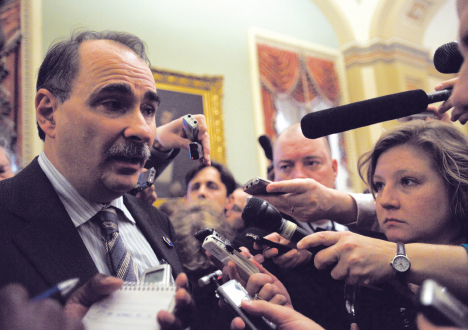Public Relations in a Democratic Society
Printed Page 376
PR’s most significant impact on our democracy may be its involvement in the political process, especially when organizations hire public relations specialists to favorably shape or reshape a candidate’s image. Consider PR’s role in national election campaigns. During these immense efforts, all candidates have an exten-sive PR and strategy staff. Sometimes things go well; other times, they don’t. For example, in the 2008 presidential contest, Democratic nominee Barack Obama’s team was headed by David Axelrod, founder of Chicago-based political and media consulting firm AKPD Message and Media, who smoothly guided Obama to the White House. By contrast, Republican nominee John McCain and his running mate Sarah Palin went through numerous campaign and PR strategists in their more tumultuous bid for the Oval Office.
Political public relations efforts don’t end after an election, however. PR is in play when candidates take office, govern, or participate in or react to political movements like the Tea Party or Occupy Wall Street. Just as many journalism outlets cover the news in permanent twenty-four-hour cycles, so must PR agencies stay involved with political, social, and media processes.
Though public relations often provides political information and story ideas, the PR profession bears only part of the responsibility for “spun” news; after all, it is the job of a PR agency to get favorable news coverage for the individual or group it represents. PR professionals police their own ranks for unethical or irresponsible practices, but the news media should also monitor the public relations industry, as they do other government and business activities. Journalism itself also needs to be more conscious of how its own practices play into the hands of spin strategies. As a positive example of change on this front, many major newspapers and TV networks now offer regular assessments of the facts and falsehoods contained in political advertising. This media vigilance should be on behalf of citizens, who are entitled to robust, well-rounded debates on important social and political issues.

Like advertising and other forms of commercial speech, PR campaigns that result in free media exposure raise a number of questions regarding democracy and the expression of ideas. Large companies and PR agencies, like well-financed politicians, have money to invest in figuring out how to obtain favorable publicity. The question is not how to prevent that but how to ensure that other voices, less well financed and less commercial, also receive an adequate hearing. To that end, journalists need to become less willing conduits in the distribution of publicity. PR agencies, for their part, need to show clients that participating as responsible citizens in the democratic process can serve them well and enhance their image. But in the end, all citizens bear the responsibility of understanding that the public relations industry surrounds us, regardless of what issues or sides we favor. It is a part of the media experience and, as such, part of our daily lives. As such, media literacy must also include awareness and knowledge of PR, and all of that ways it can affect us.